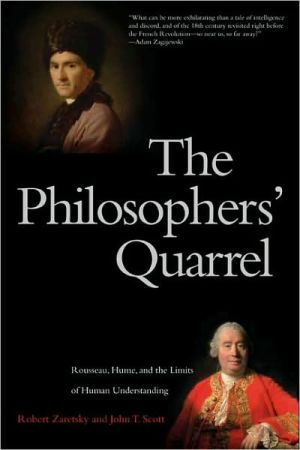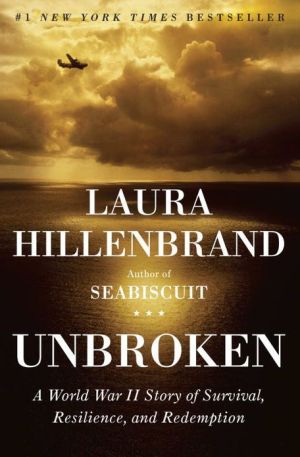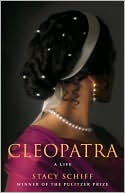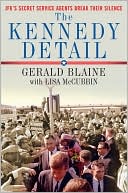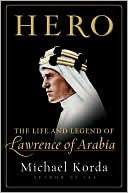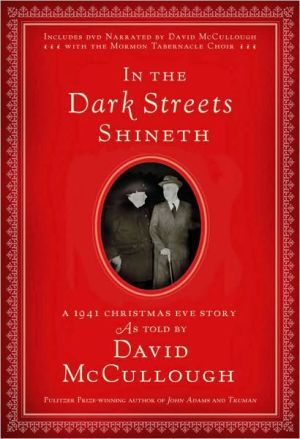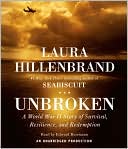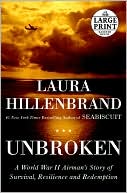The Philosophers' Quarrel: Rousseau, Hume, and the Limits of Human Understanding
The rise and spectacular fall of the friendship between the two great philosophers of the eighteenth century, barely six months after they first met, reverberated on both sides of the Channel. As the relationship between Jean-Jacques Rousseau and David Hume unraveled, a volley of rancorous letters was fired off, then quickly published and devoured by aristocrats, intellectuals, and common readers alike. Everyone took sides in this momentous dispute between the greatest of Enlightenment...
Search in google:
The rise and spectacular fall of the friendship between the two great philosophers of the eighteenth century, barely six months after they first met, reverberated on both sides of the Channel. As the relationship between Jean-Jacques Rousseau and David Hume unraveled, a volley of rancorous letters was fired off, then quickly published and devoured by aristocrats, intellectuals, and common readers alike. Everyone took sides in this momentous dispute between the greatest of Enlightenment thinkers. In this lively and revealing book, Robert Zaretsky and John T. Scott explore the unfolding rift between Rousseau and Hume. The authors are particularly fascinated by the connection between the thinkers’ lives and thought, especially the way that the failure of each to understand the other—and himself—illuminates the limits of human understanding. In addition, they situate the philosophers’ quarrel in the social, political, and intellectual milieu that informed their actions, as well as the actions of the other participants in the dispute, such as James Boswell, Adam Smith, and Voltaire. By examining the conflict through the prism of each philosopher’s contribution to Western thought, Zaretsky and Scott reveal the implications for the two men as individuals and philosophers as well as for the contemporary world. The Barnes & Noble Review It is a welcome turn -- one should more accurately say: return -- for our culture that philosophy is once again a possession of what David Hume called the "conversable" and not just the scholarly part of mankind. An increasing abundance of popular works both of and about philosophy (genuine philosophy, not just the upliftingly platitudinous sort published in pastel covers and odd shapes) is one part of the reason; this reprises the way philosophy was once read by all educated folk, for whom it was written in clear language. This was before the twentieth century revival of a jargon-rich scholasticism which shut out the general public and made a studious philosophical apprenticeship necessary before one could engage in it.
THE PHILOSOPHERS' QUARREL\ Rousseau, Hume, and the Limits of Human Understanding \ \ By ROBERT ZARETSKY JOHN T. SCOTT \ YALE UNIVERSITY PRESS\ Copyright © 2009 Robert Zaretsky and John T. Scott\ All right reserved.\ ISBN: 978-0-300-12193-3 \ \ \ Chapter One\ An Enlightenment Quarrel\ I have the feeling that philosophy leads to sorrow. -Jean-Jacques Rousseau to Mme d'Épinay\ Since reason is incapable of dispelling these clouds, nature herself suffices to that purpose and cures me of this philosophical melancholy and delirium. -David Hume, A Treatise of Human Nature\ March 18, 1766, was meant to be the day for thanks and farewells between Europe's two most celebrated philosophers. Jean-Jacques Rousseau was set to leave London, with his companion Thérèse Le Vasseur, for Wootton Hall, an estate deep in north England. David Hume had arranged for this asylum, as he had most everything since he had accompanied Rousseau from France to England more than two months before, when Hume had first come to Rousseau's rescue. Though he had never before met the Swiss thinker and novelist, Hume had been moved by his plight: Rousseau's writings had been burned and his life threatened in his adopted France as well as his native Geneva. As a cosmopolitan freethinker in Calvinist Scotland and a Scottish Tory in Whiggish and xenophobicLondon, Hume had learned to sympathize with the persecuted. Learning of Rousseau's predicament, he had employed his considerable reputation and energy to resolve it.\ Yet thanks, if not farewells, seemed the last thing on Rousseau's mind when he entered Hume's drawing room. Wearing his usual flowing Armenian caftan and tall fur cap, the Genevan turned on his host, blasting Hume for treating him like a child. Rousseau announced his discovery that the coach he and Thérèse were boarding the following day for Wootton Hall was offered under false pretenses. With Hume's acquiescence, Rousseau's patron and the owner of Wootton Hall, Richard Davenport, had paid for the chaise and, to spare the philosopher's abundant sensibilities and his meager pocketbook, had told the philosopher that a happy convergence of events meant that only a nominal fare would be charged.\ This subterfuge, undertaken with the best of intentions, unleashed furies. While he might be poor, Rousseau told Hume that he preferred "to conform to his circumstances than live like a beggar on alms." Overwhelmed by the ferocity of his friend's attack, Hume, his round and fleshy face gone white, insisted upon his innocence-in vain. No less vain were his efforts to engage his friend in conversation. Rousseau gave curt replies, each time falling back into brooding silence.\ This uneasy scene had lasted nearly an hour when, without warning, Rousseau leaped onto Hume's lap, threw his hands around his huge neck, and covered his face with tears and kisses. "Is it possible you can ever forgive me, my dear friend?" cried Rousseau. "After all the testimonies of affection I have received from you, I reward you at last with this folly and ill behavior. But I have notwithstanding a heart worthy of your friendship. I love you, I esteem you; and not an instance of your kindness is thrown away upon me."\ Hume unraveled under this deluge of affection. As his friend clasped his neck, Hume too began to weep. Patting the folds of dark brown silk hanging limply along the man's back, Hume reassured Rousseau of his love and friendship. As Hume later confessed to a friend, "I think no scene of my life was ever more affecting."\ And perhaps no scene in Hume 's life had ever been more drastically misunderstood. After Rousseau left for Wootton Hall the next day, he and Hume would never again see each other. Within a matter of weeks, their friendship dissolved into a passionate quarrel, played out in salvos of impassioned and recriminatory letters and pamphlets. The correspondence was quickly translated into French and English, becoming a subject of intense conversation and argument on both sides of the Channel. Europe's traditional aristocracy, and even more so the rising aristocracy of intelligence that formed the Continent's "Republic of Letters," were riveted by the feud, taking sides with a degree of conviction that the era's dynastic wars could not command. As Hume himself ruefully noted, the rise and fall of his friendship with Rousseau had made "so great a noise."\ The sheer fascination with calamities partly explains the public fixation with the noisy row between Hume and Rousseau. Although of a different order of magnitude, just a decade earlier the 1755 Lisbon earthquake thus riveted the attention of Europeans. This was to be expected of a catastrophe that involved tidal waves, great fissures, raging fires, cinder-darkened skies, and vast carnage-all in a major capital of western Europe. Morbid curiosity was not the only reason for the unprecedented preoccupation with Lisbon, however. After all, there had always been earthquakes, but until Lisbon the tremors did not outrage human understanding. As Susan Neiman argues, earlier disasters-even a scant fifty years before, when an earthquake leveled Port Royal, Jamaica-failed to spark attention largely because they did not upset the moral or conceptual order of Western man. The European worldview was still rooted in a Christian understanding of Providence, whether citing God's mysterious ways or conceiving the order of the universe as having been set in motion by a clockmaker deity. But subsequent changes, especially in the intellectual terrain, made for a perfect philosophical storm after Lisbon. The event spurred a raft of essays, poems, pamphlets, and books, including an exchange between Rousseau and Voltaire and an appearance in Candide. All of these works raised questions concerning God's goodness and power, and, no less important, the fundamental intelligibility of the world and the human situation. As Neiman notes, the idea that the world and life "were not mysterious was a demand of reason embodied in natural religion as in other eighteenth century discoveries."\ Although it left no decaying bodies or demolished buildings in its wake, the Hume-Rousseau affair, like Lisbon, heaved critical questions to the surface of the intellectual world. Most particularly, the rift between these remarkable men posed the problem of understanding others and our own selves. Both Hume and Rousseau had devoted their lives to contributing to the great Enlightenment project of human understanding and, at the same time, challenging it. And yet not only did they come away with very different versions of what took place that evening at Hume's lodgings: it also became painfully clear that, from the outset, they never fully understood each other, or themselves.\ The nature and response to the Hume-Rousseau affair, as with the aftermath of Lisbon, make sense only when set in the Enlightenment. Yet, as a theoretical concept and historical era, the Enlightenment has long meant different things to different scholars. For some the Enlightenment captures all that is good and great about the ideas and ideals of a liberal and liberating eighteenth century. Peter Gay memorably described the Enlightenment as the "recovery of nerve," led by heroic thinkers committed to the progress of humankind through the application of critical reason. For others, however, the Enlightenment exposes all that is wrong and tragic about the idols and ideologies of an illiberal and repressive West. From the Frankfurt theorists Theodor Adorno and Max Horkheimer to postmodern critics like Michel Foucault, the absolutist emphasis on reason by Enlightenment thinkers enabled rather than challenged the hierarchical and despotic character of society and politics in Old Regime Europe. The Enlightenment, for these critics, has been a nightmare of reason from which the West has never awakened.\ For yet others, the old notion of a single, pan-European Enlightenment reduces the complexity of its history-or, more accurately, its histories. A growing number of historians have argued that there were, in fact, several national Enlightenments, ranging from the French and German to the British and Scottish, distinguished from one another by various political, social, and cultural traits. Moreover, others have identified different Enlightenments within a single country. Robert Darnton has portrayed the difficult relationship between High and Low Enlightenments in eighteenth-century France, while, most recently, Jonathan Israel has claimed that a "radical Enlightenment" led by Benedict Spinoza and Pierre Bayle in the Dutch Republic preceded the better-known, less original High Enlightenment of Montesquieu and Voltaire. In the end, there will almost certainly never be a unified field theory of the Enlightenment. But this is not a reason for disposing of the term: it is, in every sense of the phrase, easier to live with the Enlightenment than without it. As a social, philosophical, and political legacy for all who followed, as a heuristic concept for the scholars who study it, the Enlightenment is indispensible.\ As with any historical caption, the Age of Reason hides as much as it reveals. Certainly, enlightened men and women of the eighteenth century began to question and ultimately reject the received truths of religion and faith, church, and traditional authorities. Dissatisfied with such constraints, they turned to critical reason to realize our potential as human beings. Historians have long noted that this generation of thinkers largely distrusted overly ambitious claims for reason that they associated with seventeenth-century systematic thinkers like Descartes and Leibniz. For this new and more skeptical generation, reason divorced from experience, doubt, and experiment was as useless as church dogma in making sense of our world and our own selves. Skeptics embraced the conviction that only scientific method could penetrate the secrets of nature and lead, as the English philosopher Francis Bacon wrote in The New Atlantis, to "the effecting of all things possible."\ Nevertheless, many leading figures of this movement insisted upon the great and good offices provided by scientific method and inductive reasoning. Despite doubts and hesitations, there was a widespread belief among the philosophes-the name given to the men and women, less original thinkers than brilliant pamphleteers and conversationalists, who identified with this intellectual movement-in the liberating power of reason. The declaration made by the Baron d'Holbach, who will play a critical role in our story, is telling:\ Despite all the efforts of tyranny, despite the violence and trickery of the priesthood, despite the vigilant efforts of all the enemies of mankind, the human race will attain enlightenment; nations will know their true interests; a multitude of rays, assembled, will form one day a boundless mass of light that will warm all hearts, that will illuminate all minds.\ Perhaps the most famous expression of this faith in reason is the Marquis de Condorcet's Sketch for a Historical Picture of the Human Mind. In this credo, Condorcet declares that human reason and established fact reveal "that nature has set no term to the perfection of human faculties; that the perfectibility of man is truly indefinite; and that the progress of this perfectibility, from now onwards independent of any power that might wish to halt it, has no other limit than the duration of the globe upon which nature has cast us." Condorcet wrote these words while in hiding from the revolutionary Terror that would eventually claim his life-testimony to his faith in reason, and, tragically, to his blindness to reason's excesses in the course of the Revolution.\ In this book we engage many of the historical and conceptual debates surrounding the Enlightenment, but we shall not try to answer them. The book is less about the Enlightenment than about a puzzling series of events that occurred within the Enlightenment. We tell the story of the brief and dramatic friendship between Hume and Rousseau, and point to the implications it may have for the Enlightenment's conception of human reason and understanding. In order to do so, we contextualize their thought within their own lives and the world they inhabited. We do so not on the assumption that their personalities and their time determined their thought, but in keeping with how they themselves saw philosophy: as a way of life and as a form of action in the world. The rise and fall of the friendship between Rousseau and Hume, then, was a particularly dramatic, and we think revealing, example of a collision between two individuals who struggled to understand themselves, each other, and the world they inhabited together.\ It was in their attitudes toward reason, the Enlightenment's key article of faith, that Hume and Rousseau, opposites in so many other ways, became odd bedfellows. With calm and deliberation, the Scot blasted our deepest convictions concerning the reasonability of trusting in reason: though we pretend that reason rules our lives, he declared, habit and passion instead inevitably hold sway. Even for the happy few ruled by the "empire of philosophy," the reach of reason "is very weak and limited." Ultimately, reason was "the slave of our passions"-a state of affairs, paradoxically, Hume welcomed rather than regretted. As for Rousseau, reason did not even merit this reduced station. Not merely weaker than the passions, reason actually made moral, social, and individual matters worse. While Hume conceded that reason was strong enough to know its limitations, Rousseau identified reason as the disease for which it pretended to be the cure.\ The two philosophers took very different consequences from their critiques of reason: Hume championed the progress of the sciences and arts (though with more modest expectations than those of his contemporaries), while Rousseau questioned progress, wondering whether it was just another word for moral decay and despair. Both men, nevertheless, were and remain our most important critics of reason. The grounds for their claims against reason are complex-neither man, we will see, was an irrationalist, much less a mystic. On the contrary, their critiques of reason are models of logic and lucidity. In this regard, their relevance for our own age is clear: religious fanatics and philosophical reactionaries hounded Hume and Rousseau throughout their lives. Both men, moreover, detested the hypocrisies and hubris of the political classes, just as they decried the ways in which greed and injustice were gussied up in noble sentiments.\ No less important, the ways in which these two men lived their lives-and conducted their ill-fated friendship-pose the question of the relationship between ideas and life, thinking and living. Philosophy nowadays seems to be a profession, not a discipline. Academic philosophers write on the history of philosophy or work in analytic philosophy. But as for proposing a worldview-a coherent system by which we can understand the world and our place in it-and a reworking of our selves: this is no longer common.\ Philosophy has too commonly become an occupation, where "doing" philosophy is no different from "doing" physics or psychology, literature or statistics. The contrarian historian of ancient philosophy Pierre Hadot worries that philosophy in our age has become the activity of bureaucrats, whose great task is to reproduce themselves: "to form other bureaucrats, rather than form man." He has argued that ancient philosophy was not simply a theoretical discourse but also an art of living, a method for aligning our lives with our thought. Alexander Nehamas writes in a similar vein. The ancients, he declares, were onto critical matters that we have lost sight of in our age of hyperspecialization. "Theory and practice, discourse and life, affect one another," he writes, "and people become philosophers because they are able and willing to be the best human type and to live as well as a human being possibly can. What one believes and how one lives have a direct bearing on one another." Our sensibilities are attuned to these worries about how philosophy seems to have fallen, for we are shocked when we learn that a philosopher can give aid and comfort to totalitarian regimes. In the end, we are shocked that philosophers are as thoughtless as the rest of us.\ While the stance that philosophy is a way of life is usually associated with antiquity, this view remained alive and well during the Enlightenment. During the eighteenth century this view was, in a sense, resurrected as men and women came to expect great things of philosophers, with faith that they would make sense of our lives. Herein lies part of the tremendous appeal of Rousseau and Hume. The fascination that their lives, and not merely their thought, exercised on contemporaries carries across the centuries. We are historically bound and intellectually indebted to both men, and it may not be too naïve to believe that the unintended lessons of their work and lives, no less than the intended, still have something to teach us.\ \ \ \ \ Excerpted from THE PHILOSOPHERS' QUARREL by ROBERT ZARETSKY JOHN T. SCOTT Copyright © 2009 by Robert Zaretsky and John T. Scott. Excerpted by permission.\ All rights reserved. No part of this excerpt may be reproduced or reprinted without permission in writing from the publisher.\ Excerpts are provided by Dial-A-Book Inc. solely for the personal use of visitors to this web site. \ \
1 An Enlightenment Quarrel 12 The Wild Philosopher 83 The Great Scot 374 The Lord of Ferney 565 Le Bon David 726 A Stone's Throw from Paris 907 First Impressions 1048 A Public Spectacle 1149 Poses and Impostures 12810 Hume, Judge of le Bon David 14911 An Enlightenment Tragedy 17012 So Great a Noise 18313 How Philosophers Die 198Notes 211Index 239
\ Publishers WeeklyImagine a world where philosophers are celebrities, their works are greeted with stone throwing and literary correspondences are the stuff of tabloid-style publication. This was the world of 18th-century Europe, where David Hume and Jean-Jacques Rousseau's friendship, which lasted but six months, created a public stir and has a remarkable enough trajectory to be the centerpiece of this study of Enlightenment mores. Further, the dispute highlights a key divergence in the study of human understanding: "Rousseau represented an alternative way of knowing that went, in a certain sense, beyond reason to regions reached only through the imagination and the passions." This mode of thinking sets the stage for Rousseau's dramatic misunderstanding of Hume's intentions and actions, and ushers in Rousseau's revolutionary demotion of "adherence to external or objective truth," replacing it with "loyalty to one's own self." Zaretsky and Scott (coauthors of Frail Happiness: An Essay on Rousseau) weave vivid storytelling together with elegant arguments about this transitional period from the Enlightenment to the Romantic period. The book is also a revealing intellectual history of Rousseau's compelling madness and mystifying genius. Illus. (Mar.)\ Copyright © Reed Business Information, a division of Reed Elsevier Inc. All rights reserved.\ \ \ \ \ Booklist"In a remarkable salvage operation, Zaretsky and Scott rescue from the wreckage of a famous friendship the remains of two contrasting Enlightenment perspectives. . . . An engaging narrative showing how divergent philosophical principles play out in real life."—Booklist\ \ \ \ Bookseller"Initially these two giants of philosophy were friends but their spectacular falling out became the talk of 18th-century society. . . . [T]he light that is shed on the philosophers themselves is illuminating." — Bookseller, 23rd January 2009\ \ \ \ \ \ The Barnes & Noble ReviewIt is a welcome turn -- one should more accurately say: return -- for our culture that philosophy is once again a possession of what David Hume called the "conversable" and not just the scholarly part of mankind. An increasing abundance of popular works both of and about philosophy (genuine philosophy, not just the upliftingly platitudinous sort published in pastel covers and odd shapes) is one part of the reason; this reprises the way philosophy was once read by all educated folk, for whom it was written in clear language. This was before the twentieth century revival of a jargon-rich scholasticism which shut out the general public and made a studious philosophical apprenticeship necessary before one could engage in it. \ Another part of the reason for the return is the appearance of an increasing number of satisfying biographies of philosophers, and even more satisfying books that take us into philosophical lives and thought by hooking themselves to notable moments in philosophy's history. The account by Robert Zaretsky and John T. Scott of the bitter falling-out between Jean-Jacques Rousseau and the man who had befriended and helped him, David Hume, falls into this category. As the latest in the happily growing line of such, its arrival at the bookstores is a welcome event.\ At first one might think that biographies of philosophers must be dull stuff, for what did they do of note but sit and think, and sometimes write? George Bernard Shaw would appear to sum up matters on their behalf: "I have had no heroic adventures," he said. "Things have not happened to me; on the contrary it is I who have happened to them; and all my happenings have taken the form of books. Read them, and you have my whole story; the rest is only breakfast, lunch and dinner." But to think this would be to miss much. Socrates perverted the youth of Athens and had to drink hemlock. Abelard suffered castration for his illicit romance with Heloise. Descartes was present both at the Battle of the White Mountain and the subsequent massacres of Bohemian Protestants and might have been a spy for the Jesuits. Locke had to flee into political exile. Bertrand Russell went to prison for opposition to the First World War, while his pupil and later nemesis Wittgenstein served in the Austrian army and wrote his Tractatus on the Eastern Front. Nietzsche and Althusser went mad; the latter strangled his wife, while the former's sister strangled his reputation. Sartre was a Communist, Heidegger a Nazi. Camus played football and died in a car crash. Not a few of them were preternaturally amorous. On the whole, many philosophers seem to have been more rather than less energetic, even though some (Berkeley, Kant) led meditative lives of exemplary quietness.\ Thus it is that the recent spate of absorbing biographies of philosophers turns out to be not just a valuable but a lively addition to the conversation of mankind. Until they began to appear there were a few one-offs: Ernest Mossner's mighty 1946 account of David Hume, Maurice Cranston's 1957 biography of John Locke, Ronald Clark's 1975 biography of Bertrand Russell. But then Ray Monk changed everything with his remarkable account of Wittgenstein in 1991, and the floodgates opened. Between 1999 and 2006, readers were offered Terry Pinkard on Hegel, Manfred Kuehn on Kant, Rudiger Safranski on Heidegger and Nietzsche, Joachim Kohler's more controversial perspective on the latter, Curtis Cate on the same, Rebecca Goldstein on Spinoza, and my own biography of Descartes -- no one can claim that there is not a freeway into philosophy through this accessible route.\ And even more so is the developing genre of philosophy by crux event. The trigger for this was the entertaining Wittgenstein's Poker (2002) by David Edmonds and John Eidenow, which they followed with Rousseau's Dog in 2006. The first tells the story of an evening in Cambridge when Karl Popper came to speak, and during the disagreements that followed Ludwig Wittgenstein waved a poker -- at him? Accounts of the event differed; Edmonds and Eidenow use the occasion as a way of telling us about Popper, Wittgenstein, their views, the state of philosophy at the time of the encounter, and more. Their second book tells the story of Rousseau and Hume and the former's paranoia-driven, egoism-fuelled attack on the latter, who had done nothing but help him in his crisis of exile.\ The Edmonds-Eidenow success with fire iron as philosophy prompted Matthew Stewart to write The Courtier and the Heretic (2006) about Leibniz's one and only visit to Spinoza, which took place in 1767 and led to later allegations of plagiarism by Leibniz, who saw some of Spinoza's unpublished manuscripts while waiting in his living room. The nub of their meeting was a profound disagreement about God: they thus reprised one of the commonest sources of dispute in mankind.\ Zaretsky and Scott know the Edmonds-Eidenow book about the quarrel between Rousseau and Hume, because they quote it -- rather sparingly. Both books tell the story well; the difference is that Edmonds-Eidenow have the better prose and Zaretsky-Scott the fuller detail. Also, Zaretsky-Scott are ambitious to use the story as a way of making a philosophical point about (as their subtitle tells us) "the limits of human understanding." In this they fail, because the flaw in their otherwise fascinating account is that they get the philosophy somewhat wrong.\ Rousseau had a knack for annoying the authorities wherever he happened to be, and if not the authorities then the neighbors or his host's servants -- or indeed his hosts -- and as a result was driven from pillar to post more than most people of a controversial and difficult disposition are; and Rousseau was emphatically one such. When he was obliged to quit his native Switzerland in 1765 he had a choice: one of the German states of Frederick the Great, or England. After much hesitation he chose the latter. David Hume was then coming to the end of a diplomatic posting in Paris and happily accepted the task of taking Rousseau -- whom he had not yet met -- to England and settling him there, confident that many people would be willing to help the famous and widely admired exile, and that King George III could be prevailed upon to give him a pension. In every respect Hume was right. What he was utterly and disastrously wrong about was Rousseau himself.\ Not that he was not warned: Voltaire, the Baron d'Holbach, indeed almost everyone Hume knew in France, advised him to watch out. When Hume told d'Holbach how quickly he and Rousseau had bonded in their first meetings in Paris, and how much he looked forward to being with Rousseau in England, d'Holbach said, "Though I am sorry to dispel your pleasant hopes and illusions, you will see before long that you were deceived. You do not know your man. I tell you plainly that you are nursing a viper in your bosom."\ And so it proved. Rousseau was a genius, but he was a genius who was also selfish, paranoid, at least half mad, an egomaniac, painfully sensitive on his own behalf and crassly indifferent to others, towards whom his needy effusions of affection could -- and habitually did -- turn in an instant into malevolence and spite. Hume was a benevolent man, a genial proponent of common sense and civility; what he was himself he assumed others to be, and this was his fateful error with Rousseau. When, after placing Rousseau, his dog, and his concubine in a delightful country retreat and arranging a pension for him from the king, Hume's reward was to receive long epistolary ranting accusations from Rousseau about betrayal, conspiracy, and blackness of heart, he was bewildered and then -- uncharacteristically -- angered. He defended himself; the exchange of letters between them was published in France and England to feed the curiosity of an avid pubic, for they were both famous men and had followings, Hume among the salonnières and Rousseau among the romantics. Zaretsky and Scott tell the story skillfully, treating it as it should be treated: as drama, full of sound and fury indeed -- and in this case signifying much.\ The much in question is the conflict between two deeply different outlooks. Here is where Zaretsky and Scott get the philosophy wrong. They start by thinking of Hume and Rousseau as equally giants of the Enlightenment. But Rousseau was, of course -- and as the book proceeds, so its authors more and more have to concede -- far from an Enlightenment figure. He was a Romantic, and a full-blooded one. For him it was not knowledge, empirical reason, or the common-sense beliefs prompted by the structure of human psychology that should guide one both in philosophy and life -- this was Hume's view -- but instead one's feelings, sentiments, passions, impulses. Hume early spotted that Rousseau had little reading and little knowledge but was all native genius; genius of a high order, but undisciplined, uninformed, and subjective. In a letter to a friend written before the debacle, while he was still extolling Rousseau's genius (which by the way, he always did, even afterward), Hume wrote, "He has read very little during the course of his life...he has seen very little, and has no manner of curiosity.... He has reflected, properly speaking, and studied very little; and has not indeed much knowledge." And Hume then identified exactly what made Rousseau the man he was: "He has only felt, during the whole course of his life and in this respect, his sensibility rises to a pitch beyond what I have seen any example of."\ Hume was an opponent of the Rationalist's belief that a priori reason can reveal ultimate truths about the universe, man, and God. In place of this traditional philosophical view he extolled empirical reason and common sense, the true Enlightenment virtues. Zaretsky and Scott do not quite see the distinction between the reason of the Rationalists and the reason of the Empiricists (which is the reason of the Enlightenment), and thus make a paradox, where one does not exist, out of Hume's being an Enlightenment man who attacked reason. For his part, Hume did not see, because he did not take seriously, the growing counter-Enlightenment mood of Romanticism. When Rousseau suddenly and viciously attacked him with the full strength of this subjectivist logic of emotion -- Rousseau felt abused, so he was abused; he sensed Hume's betrayal, so Hume had betrayed him -- Hume was momentarily stunned. His friends advised him not to retaliate; but even so sanguine and composed an individual would find it hard to bear that depth of ingratitude and calumny.\ Baron d'Holbach described Rousseau as a "philosophical quack, full of affectation, pride, oddities and even villainies." It does Hume credit that he never thought Rousseau a quack, though he now agreed with the rest of d'Holbach's analysis, and he continued to admire Rousseau's genius and eloquence even as he predicted -- rightly -- that the extravagance of Rousseau's ideas would reduce their value in the eyes of posterity.\ From Zaretsky and Scott we learn much about Hume, Rousseau, Voltaire, and others in the constellation of talents that made the Age of Enlightenment, even if (like Rousseau) some of them were in it rather than of it. There cannot be enough such books, or enough readers for them. They bring the time and its debates vividly into focus and remind one that what mattered then still matters now: not least the dangers of a philosophy of sentiment and passion -- Rousseau's prescription -- in which what one feels is justification for anything, though the world around one, if it has improved at all, has been improved by empirical common sense -- Hume's prescription. That is the real quarrel, which the quarrel between Rousseau the feeler and Hume the philosopher perfectly illuminates. --A. C. Grayling\ A. C. Grayling is an author, playwright, reviewer, cultural journalist, and professor of philosophy at London University. The most recent of his many books are Towards the Light of Liberty and The Choice of Hercules. His play Grace was recently performed in New York City.\ \ \
